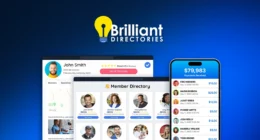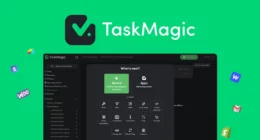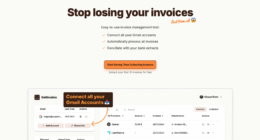Several free accounting software options stand out for small businesses in 2024. Wave Accounting leads with unlimited invoicing and expense tracking, while ZipBooks offers extensive bookkeeping features at no cost. CloudBooks and GnuCash provide robust alternatives with multi-user support and open-source flexibility. Key features include professional invoicing, automated tax calculations, and bank integration. Most platforms offer mobile accessibility and basic expense management, though advanced features may require paid upgrades. Exploring these solutions reveals additional capabilities for growing businesses.
Quick Overview
- Wave Accounting offers a completely free plan with professional invoicing, expense tracking, and unlimited bank account connections.
- ZipBooks provides unlimited free invoicing and basic bookkeeping features ideal for startups and small businesses.
- GnuCash is an open-source option with comprehensive features including payroll management and vendor tracking capabilities.
- Most free accounting software offers mobile accessibility and cloud-based access, allowing business management from any device.
- Free accounting platforms include essential tax calculation features and financial reporting tools for regulatory compliance.
Understanding Free Accounting Software Features

When exploring free accounting software, businesses need to understand the core features that make these tools valuable for financial management.
Modern free accounting platforms offer robust capabilities across several essential areas. The software typically includes professional invoicing tools that allow businesses to create customized invoices with company logos and personalized messages. Users can automate recurring invoices and track payment status efficiently. These solutions often include payment gateway integration for seamless transaction processing. Popular options like Wave Accounting provide straightforward cash flow management and customizable invoicing features.
Free accounting software delivers powerful business tools, from branded invoicing to automated payment tracking – everything needed for professional financial management.
Expense management features help categorize and monitor business costs, while thorough inventory management tools track stock levels and generate alerts for low inventory. Many platforms provide detailed financial reporting capabilities, generating critical documents like balance sheets and income statements.
Additionally, these solutions often include tax compliance features, helping businesses calculate tax rates accurately and maintain proper documentation for filing purposes.
Top Options for Cloud-Based Financial Management
Cloud-based financial management has revolutionized how businesses handle their accounting needs, offering accessible and powerful solutions for organizations of all sizes. Several free options stand out in the market, each with unique advantages.
Wave Accounting leads with its thorough free Starter Plan, providing essential features for small businesses. ZipBooks offers unlimited invoicing and basic bookkeeping services, while CloudBooks accommodates unlimited users with some invoicing limitations. Wave Accounting's user-friendly interface makes it particularly appealing for startups and cost-conscious businesses.
Many businesses choose Wave for its multi-company support capabilities, allowing them to manage multiple entities efficiently.
For those seeking open-source alternatives, both GnuCash and Akaunting deliver robust features including payroll management and vendor tracking.
These platforms offer varying levels of mobile accessibility, with most providing cloud-based access from any device. While some services like Wave and CloudBooks focus on core accounting features, others like GnuCash and Akaunting allow for more customization through their open-source nature.
Essential Tax and Compliance Capabilities

Managing tax obligations and compliance requirements stands as a critical function of any accounting software, especially for small businesses seeking reliable free solutions.
Modern accounting platforms offer extensive features that simplify complex tax processes and guarantee regulatory compliance. Popular solutions like TurboTax Business Online provide comprehensive support for various business structures while maximizing tax savings.
Key tax and compliance capabilities include:
- Automated GST calculations and return filing support through platforms like ProfitBooks and Zoho Books
- Financial reporting tools that align with GAAP standards, available in software like FreshBooks and Kashoo
- Automated tax calculations and expense tracking features found in Wave Accounting and similar solutions
These systems help businesses maintain accurate financial records while meeting regulatory requirements. Proper documentation of invoices and receipts serves as essential evidence during potential audits.
The integration of payment gateways and automated tax calculations greatly reduces the manual workload, allowing small business owners to focus on core operations while staying compliant with tax regulations.
Integration Possibilities With Business Tools
Modern businesses thrive on seamless connections between their various operational tools, making integration capabilities a crucial factor when selecting free accounting software.
In today's digital ecosystem, the ability to connect business tools seamlessly can make or break your accounting software choice.
Free accounting platforms offer varying levels of integration across three key areas:
- Banking: Software like Wave provides unlimited bank connections, while others like ZipBooks limit free users to one account. Most platforms support automatic transaction imports and reconciliation. Popular solutions like QuickBooks integration features help streamline real-time financial management and cash flow tracking.
- Payment Processing: Solutions such as Zoho Books and FreshBooks integrate with multiple payment gateways, offering features like customizable invoices and checkout links for easier client payments. Akaunting enhances payment processing through its client portal capabilities that allow bulk payment acceptance.
- Business Management: Some platforms extend beyond basic accounting, incorporating inventory tracking and project management. Zoho Books offers integrated CRM capabilities, while FreshBooks includes time tracking and project monitoring features.
However, advanced features may require paid upgrades.
Support Resources and Community Assistance

Every successful free accounting software platform relies on a robust network of support resources and community assistance to help users maximize their experience. These platforms typically offer multiple layers of support through various channels, ensuring users can find help when needed.
Key support resources commonly available include:
- Online forums and community discussion boards where users share tips and troubleshooting solutions
- Detailed documentation, including user guides, video tutorials, and FAQs
- Direct assistance through email support and customer service teams
Open-source solutions provide additional benefits through active community participation. Users can access volunteer-contributed translations, customizations, and regular updates. Response times can be slower with public email discussions, as seen with platforms like GnuCash.
Many platforms also offer educational resources like webinars, blog posts, and training sessions, helping users stay current with software features and accounting best practices.
Frequently Asked Questions
Can I Switch to Paid Versions Later Without Losing My Accounting Data?
Most accounting software providers offer seamless data migration when upgrading from free to paid versions.
Users can typically retain all their financial records, transaction history, and account settings during the shift. However, it's important to confirm the specific migration process with the software provider beforehand.
Some platforms even offer automated migration tools and dedicated support to guarantee a smooth upgrade without data loss.
How Secure Are Free Accounting Software Platforms Against Cyber Threats?
Like a bank vault with varying levels of protection, free accounting software platforms offer different degrees of security.
Most reputable platforms implement essential safeguards like TLS encryption and multi-factor authentication. However, they may lack some advanced security features found in paid versions.
While basic protection exists through regular updates and cloud security measures, users must actively participate in security by following best practices like strong passwords and secure networks.
What Happens to My Financial Records if the Software Company Closes Down?
When a software company closes, financial records may become inaccessible or difficult to retrieve. Users often face challenges accessing their data, especially if the platform shuts down abruptly.
To protect against this risk, businesses should:
- Maintain regular data backups
- Export financial records monthly
- Keep detailed offline documentation
- Use cloud-based solutions with data portability
- Have a backup software option ready
This situation underscores the importance of proactive data management and having contingency plans in place.
Do Free Accounting Software Options Work Offline During Internet Outages?
Yes, several free accounting software options function effectively during internet outages.
Manager.io and GnuCash are robust offline solutions that continue working without internet connectivity. These programs store data locally, allowing users to access financial records, create reports, and process transactions during outages.
However, users should note that features like automatic updates or cloud backups won't work offline, making regular manual backups essential for data protection.
Are There Limitations on the Number of Transactions per Month?
Among free accounting software options, transaction limits vary considerably, with Zoho Books offering up to 1,000 monthly invoices being the most generous.
Each platform handles limitations differently: ProfitBooks caps at 25 invoices per month under their Startup plan, while Akaunting and Wave don't specify transaction limits.
However, businesses should note that these limits often reset monthly, and upgrading to paid versions typically removes these restrictions entirely.
Conclusion
Like stars illuminating the financial night sky, free accounting software solutions offer small businesses powerful tools to manage their money effectively. By carefully evaluating features, cloud capabilities, tax compliance requirements, integration options, and available support resources, business owners can select the perfect no-cost platform for their needs. The right choice empowers entrepreneurs to focus on growth while maintaining precise control over their financial destiny.








